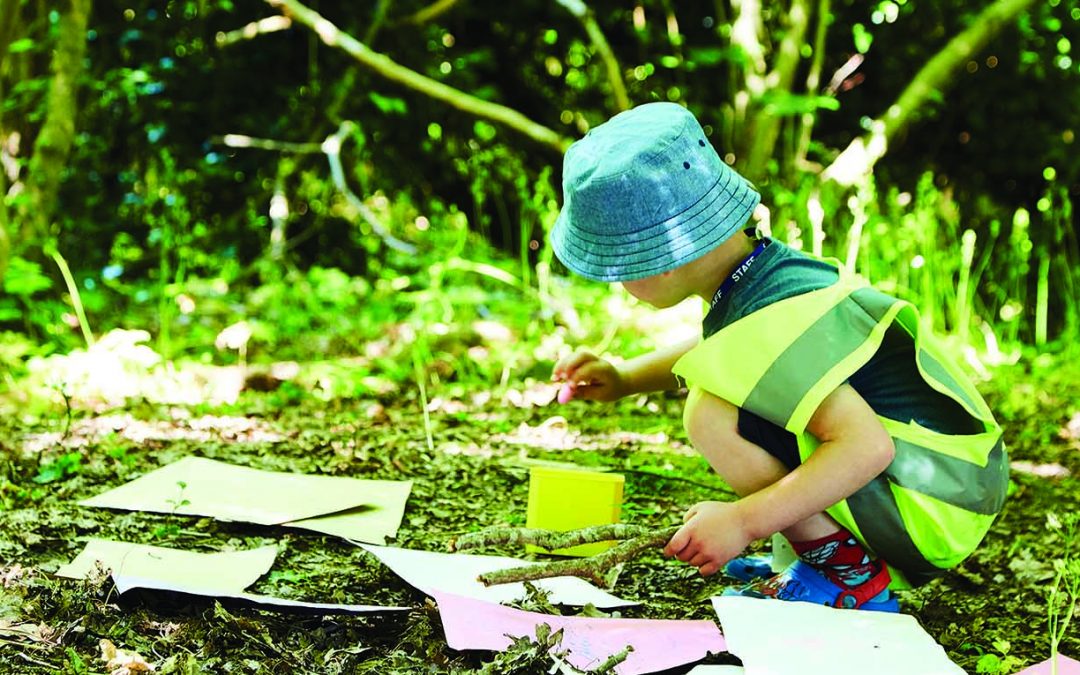Forest School, a term sometimes interpreted as free rein, is exactly the opposite.
As we approach the Autumnal months, we are beginning to consider the content of our Forest School programme to provide our children with challenges that support their learning through the natural environment. Yes, it is a walk into the wilderness, but far from being just an few hours of free reign, our sessions are carefully planned to ensure the children develop a range of skills from being outside.
Take the last session the children went out on: paramount to the venture is the safety lesson beforehand in which the parameters are set with the children for safe conduct. Once there, the children are free to explore the environment through den building, climbing, balancing, collecting and sorting. Each activity exposes the children to new sensations, textures and opportunities. Practitioners intervene only when necessary, as the premise is to support the children through risk taking and problem solving, not to take over the experience and impose their own perspective on things.
Some children are anxious at the darkness of the woods, the unusual footing, the smells and sensations of the woodland foliage; whilst others go wild at the freedom and the space. However, as we repeat the experiences throughout the summer term, the children begin to respond to the environment in a sensitive and intuitive way. Their knowledge increases, but so does their sense of belonging to the woods. It is no longer an alien force to be afraid of or rampaged through but something to enjoy quietly and learn from.
Sitting quietly within our campfire circle the children engage more collaboratively with one another, take turns and listen more intently to stories and discussion. They sip at the hot chocolate we provide and then scamper off into groups to build dens. Each branch needs to be collected and carried co-operatively, much discussion ensuing about the waterproofing of the structure. The practitioners act as catalysts to stimulate the problem solving. How can we secure the branches? What about the leaves when they rot? Are there are gaps for the water get through? Sophisticated problem solving for 3 year olds but they show surprising knowledge and team work skills. Interestingly a leader usually emerges too.
As adults, we can reflect not only on the immediate benefits to the children’s wellbeing but also the insight into the adults they may become: the leaders; the problem solvers; the peace makers and the “wild ones”.
The chat is extensive; fuelled by the openness of the environment (no listening walls to record their discussion). Language deprivation is a huge barrier to learning. Some children are limited by the fear of voicing their thoughts, others by the limitations of articulation or sometimes just through early experiences. Yet, the woodlands render all children equal. There is a common new language of new experiences, the vocabulary of which we all learn together. Names of trees; shapes of leaves; new tools and new methods of structure. An almost silent child finds his voice amongst his noisy peers. He knows the way to stop the water dripping through the den. Excitement gets the better of him and he pipes up, bravely and knowledgably, and the others finally listen.


Recent Comments